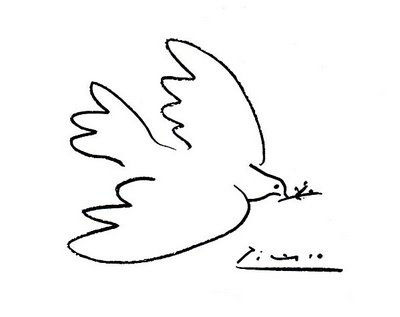The Case for Continuously Generating Content
Has writing two sentences made anyone a million dollars?
There is this famous mythological story from Picasso that probably isn’t real. But the cheesy story stands the test of time because its message is universally sound.
Picasso was at a Paris market when an admirer approached and asked if he could do a quick sketch on a paper napkin for her.
Picasso politely agreed, promptly created a drawing, and handed back the napkin — but not before asking for a million Francs.
The lady was shocked: “How can you ask for so much? It took you five minutes to draw this!”
“No”, Picasso replied, “It took me 40 years to draw this in five minutes.”
It’s a little ridiculous to assume this is true. But it shows the hidden power of mastery.
Ryan Holiday shares another anecdote on how continuous hard work creates a cycle of improvement aimed towards higher quality.
Try to apply that logic to like any other thing. Imagine if you met a comedian and they were like, “I'm really focused on quality instead of quantity, so I don't do a lot of stage time. I just don't go up very often.”
You’d be like - “your shitty stand up comic!”. The way you get good at it is by doing it a lot and it's very hard to get to quality with out years of back and forth with an audience. It is especially hard online where you're giving this thing away for free. You should be focused on quantity because quantity is how you get to a place where what you do is worth paying for.
….I've done a free email every day for six years and that's built a business. And I mean every once a while, let's say ten percent of them I’ll work with someone on my team and be like “Hey I already wrote about this can you work this into a draft for me to approve a rewrite” but like the vast majority of those daily emails were a hundred percent original ideas that I put out.
Writing in public can help by giving you specific feedback from your audience. But most of the gains come like getting good at anything else, by putting in the time to practice and make it a habit.
But not only that - writing is supposedly refining the skill of not just becoming more persuasive or more entertaining in your communication, but also in how you think.
According to Paul Graham - writing is the act of forcing yourself to think and structure your thoughts.
A good writer doesn't just think, and then write down what he thought, as a sort of transcript. A good writer will almost always discover new things in the process of writing. And there is, as far as I know, no substitute for this kind of discovery. Talking about your ideas with other people is a good way to develop them. But even after doing this, you'll find you still discover new things when you sit down to write. There is a kind of thinking that can only be done by writing
This can be tentatively extrapolated to different forms of generating content. I see that for podcast hosts that are forced to research and talk about a subject multiple times a week and eventually becomes experts in telling stories and thinking through ideas.
I see the end results from comedy in Dave Chapelle. That after hours of standup practice and material - in the last decade he can release just a couple specials for hundreds of millions of dollars.
Content is Now Infinitely More Monetizable
Let’s go back to the early 2000s. If you were a writer, you had zero distribution of your ideas unless you were a journalist or found a way to get your novel published.
Now with the internet and content distribution platforms like Youtube or Substack, anyone can compete and monetize off of attention and eyeballs.
The more people that consume your content, the bigger impact you’ll make. A hundred million people watched FIFA last month which meant that Messi’s greatness was on a hundred million people’s mind for at least a few times a month.
So if getting better at writing means you’re now working on getting smarter and more efficient at “thinking” - this logically means every bit of content that you generate in the future is going to be worth that much more over time.
You can create content by being the best ball dribbler with your feet in the world.
Or you can create content by being the best thinker and storyteller.
Once you get to a point where you improve upon thinking, story telling, or entertaining an audience, your influential content will generate money. And one thing we know about the internet is that it’s getting easier to leverage re-purposing of quality content to drive further audience viewership across the different channels that people consume information.
So to summarize
Reading and writing is a compounding loop that makes you smarter because it’s how you consume and interpret knowledge.
Writing more often helps you become a better writer through sheer repetition and practice.
Sitting down to write is incredibly hard so it installs discipline to sit at your keyboard, ignore Tiktok, and focus.
Once you build momentum however - the snowball effect compounds and you become a better writer and get smarter through sheer length of time and practice.
Content becomes more monetizable and every piece of content you generate will eventually make you better and more efficient writing better in faster amounts of time.
Then 40 years down the line, you’ll be able to write two sentences on a napkin and sell them for a million bucks like Picasso? Well maybe not.
But maybe?



